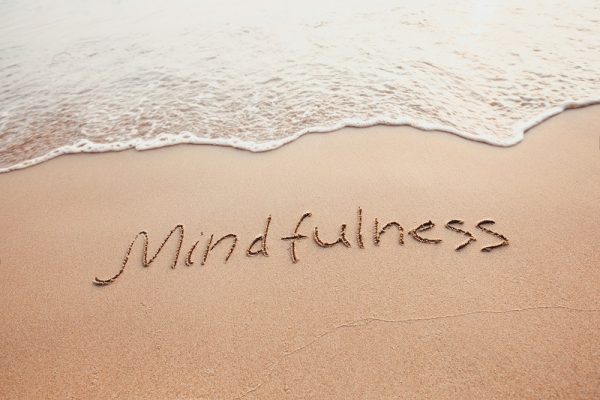Mindfulness
Understanding Mindfulness Without Judgment
by Darian Slayton Fleming
Mindfulness means being aware on purpose in the present moment without judgment. In this series I have been unpacking this definition to help you better understand each aspect. We have discussed increasing our awareness by noticing what we are noticing. When we discover something, we notice needs attending to, we know that we must be intentional; this is the “on purpose” part of the definition. When we intentionally address issues in the present moment we are more grounded and achieve greater satisfaction.
Now we come to the “without judgment” piece of the definition. When we think of the word judgment, it may conjure up thoughts of times when someone has made statements about us that are hurtful. When this happens, we experience it as a valuing of our character. These times are real and hurtful, and we need to learn skills to value ourselves or self-soothe.
Another way to think of judgment is more specific and personal. It is our ability to assess situations and make appropriate and helpful choices that align with our values. We can learn to trust our judgment and move forward with confidence and positivity.
Mastering good judgment means making informed decisions. With any given situation we always have choices. How we choose to respond sets the tone for our outcomes. Remember the “Pause, breathe, assess, respond” practice mentioned in previous articles? Learn to implement this process to hone your judgment skills.
You may determine that you need to ask for clarification or set a boundary. You may determine it is not a battle worth fighting. The point is, there are always options. With intentionality and practice, we can learn to slow down in the present moment and decide which choice we want to make.
Some issues do not need attending to. Over 80% of our thoughts in each day are negative. We can choose to intentionally redirect our thinking rather than getting caught up in the same old negativity trap. We can choose to attend to something or to let it go. How can we apply this knowledge?
Consider what happens when you worry. You are imagining the “what ifs.” Try asking yourself, “Is it helpful or unhelpful to worry about this?” I contend that it is not helpful if you cannot do something about it; it is a situation over which you have no control. You will need to work on letting go of that thought or situation.
It is helpful if there is something you can do about it. This suggests there is an action step you can take. Take that action step and see what follows.
At other times, “without judgment” means intentionally choosing to ignore certain issues. In these cases, think of developing a filter that weeds out issues to which you do not need to respond. For example, consider your infant child whom you are working with on getting to sleep on her own. You have learned that allowing her to cry for several minutes will help her learn to self-sooth and go to sleep on her own. You know that you must refrain from going in to comfort her for several minutes to see if she will calm on her own. By refraining from intervening, you are allowing it to happen and resisting the urge to fix it.
Another way to think about unwanted stimuli is to imagine it is the sound of buzzing bees or traffic outside your window. You do not need to attend to the bees unless they are actively threatening to sting you. These are situations occurring in the background, but they are not interfering in your process. You filter them out and focus on the task of the moment.
Finally, think of yourself as sitting on the shore of a river and viewing boats passing by. A party boat comes by and you can climb aboard. Another time, a war ship comes by; you are uncomfortable with violence, so you choose to stay on shore. Think of your thoughts as boats passing by. You always have the choice to board or not to board. We always have choices, even about what we choose to think about.
In summary, judgment can take the form of value being placed on you. Without judgment means intentionally choosing to refrain from making up stories about the events. Think of issues you choose not to address as bees buzzing in the background. Think of your troublesome thoughts as ships passing in the night. You have a choice whether to board that boat. You may discover that sitting on shore is a more peaceful choice. Learn to trust your gut. A successful mindfulness experience may be enhanced by the choice to stay on shore.
About the Author
Darian Slayton Fleming is a licensed clinical social worker and certified rehabilitation counselor. She is a passionate disability rights advocate and member of the American Council of the Blind. She lives in Gresham, Oregon, near her beloved son and family. Darian has been published in “Dialogue Magazine” and author of Speak Up For Yourself: Get What You Need and Feel Good About It. She is featured in The Community Book Project: Celebrating 365 Days of Gratitude. These books may be found on Amazon. She is producing a documentary about her late husband who was a blind skydiver. Check out blindjohnmovie.com.







